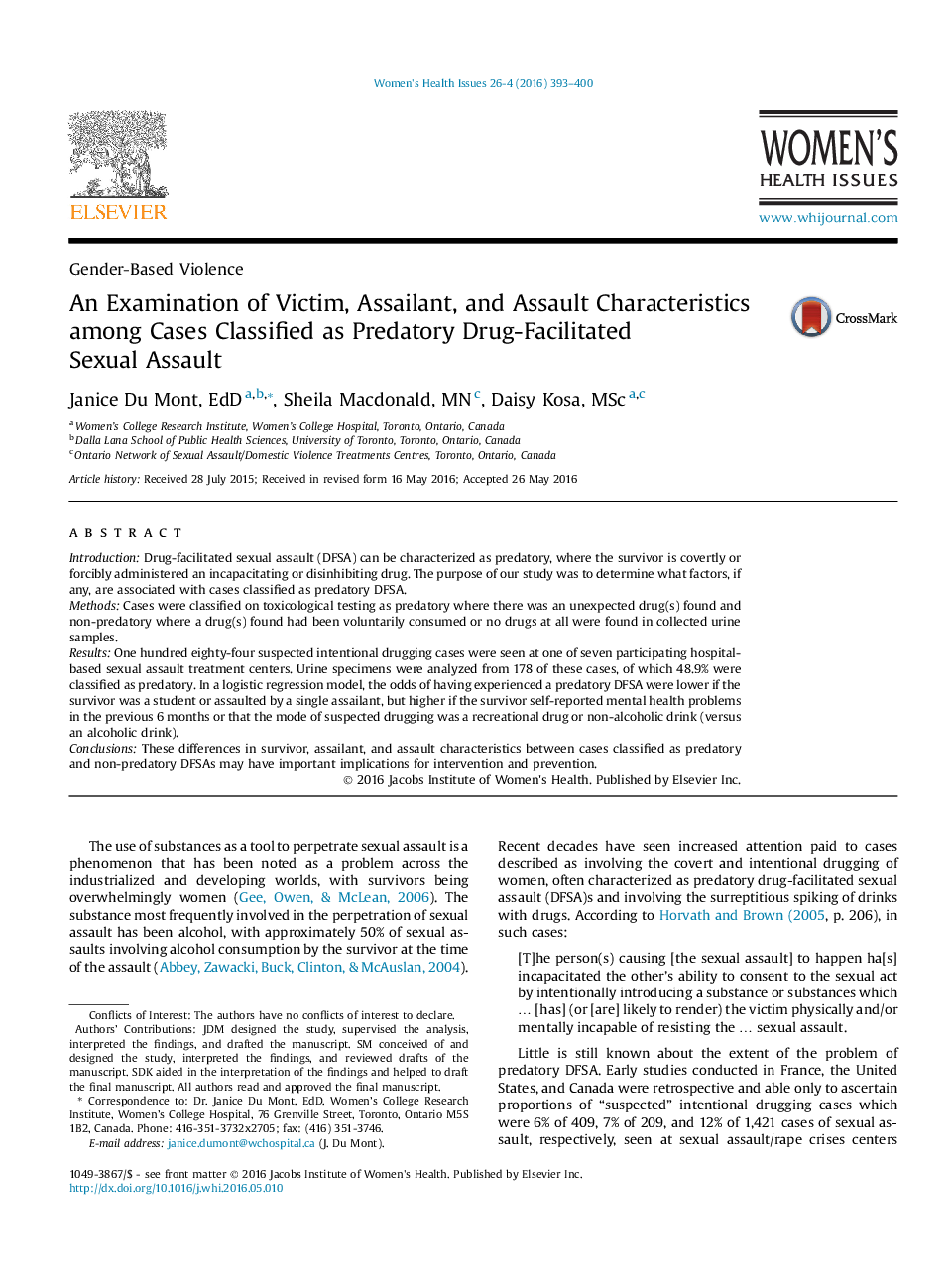| کد مقاله | کد نشریه | سال انتشار | مقاله انگلیسی | نسخه تمام متن |
|---|---|---|---|---|
| 1092838 | 1378388 | 2016 | 8 صفحه PDF | دانلود رایگان |
IntroductionDrug-facilitated sexual assault (DFSA) can be characterized as predatory, where the survivor is covertly or forcibly administered an incapacitating or disinhibiting drug. The purpose of our study was to determine what factors, if any, are associated with cases classified as predatory DFSA.MethodsCases were classified on toxicological testing as predatory where there was an unexpected drug(s) found and non-predatory where a drug(s) found had been voluntarily consumed or no drugs at all were found in collected urine samples.ResultsOne hundred eighty-four suspected intentional drugging cases were seen at one of seven participating hospital-based sexual assault treatment centers. Urine specimens were analyzed from 178 of these cases, of which 48.9% were classified as predatory. In a logistic regression model, the odds of having experienced a predatory DFSA were lower if the survivor was a student or assaulted by a single assailant, but higher if the survivor self-reported mental health problems in the previous 6 months or that the mode of suspected drugging was a recreational drug or non-alcoholic drink (versus an alcoholic drink).ConclusionsThese differences in survivor, assailant, and assault characteristics between cases classified as predatory and non-predatory DFSAs may have important implications for intervention and prevention.
Journal: Women's Health Issues - Volume 26, Issue 4, July–August 2016, Pages 393–400
